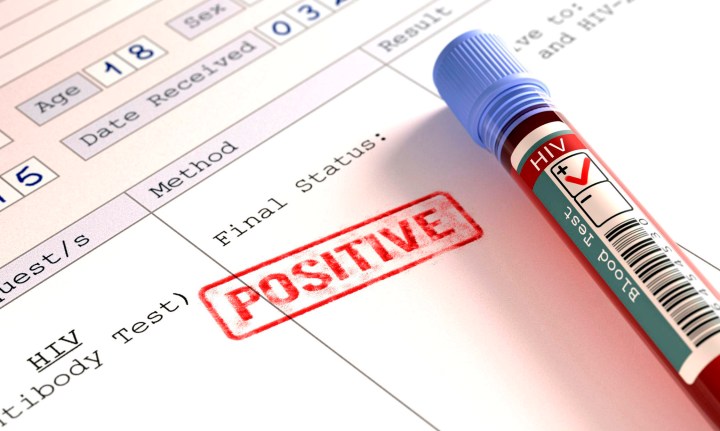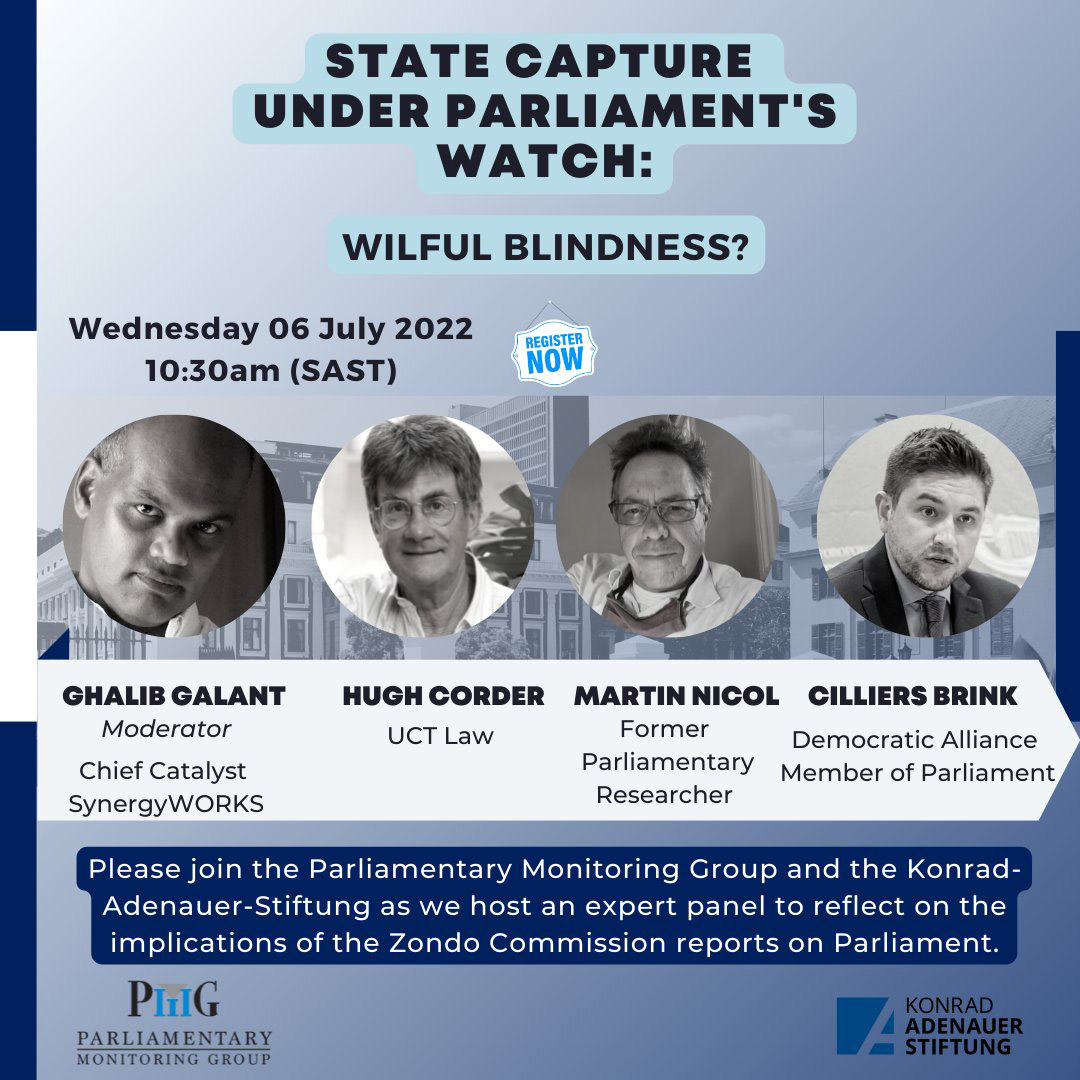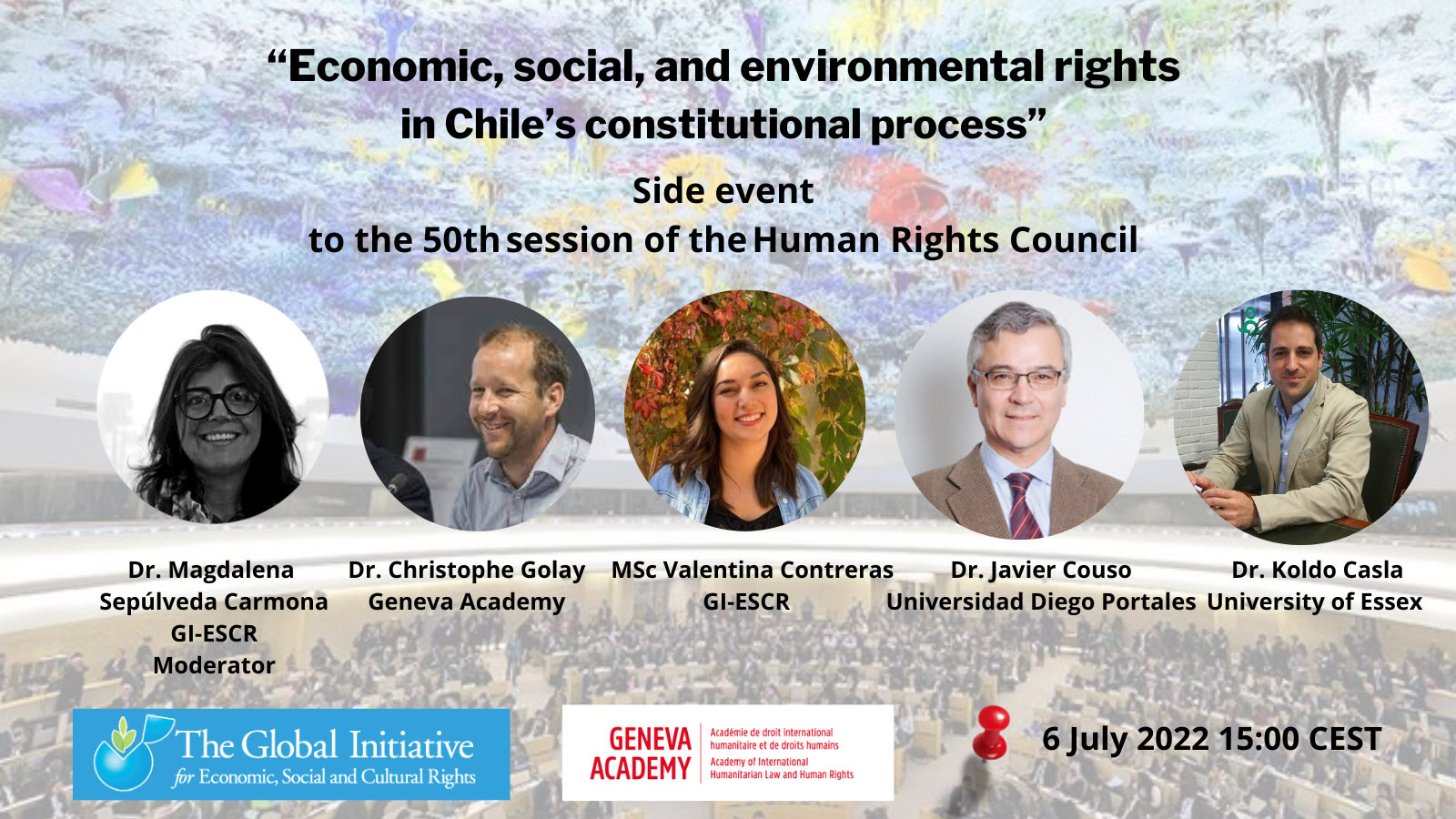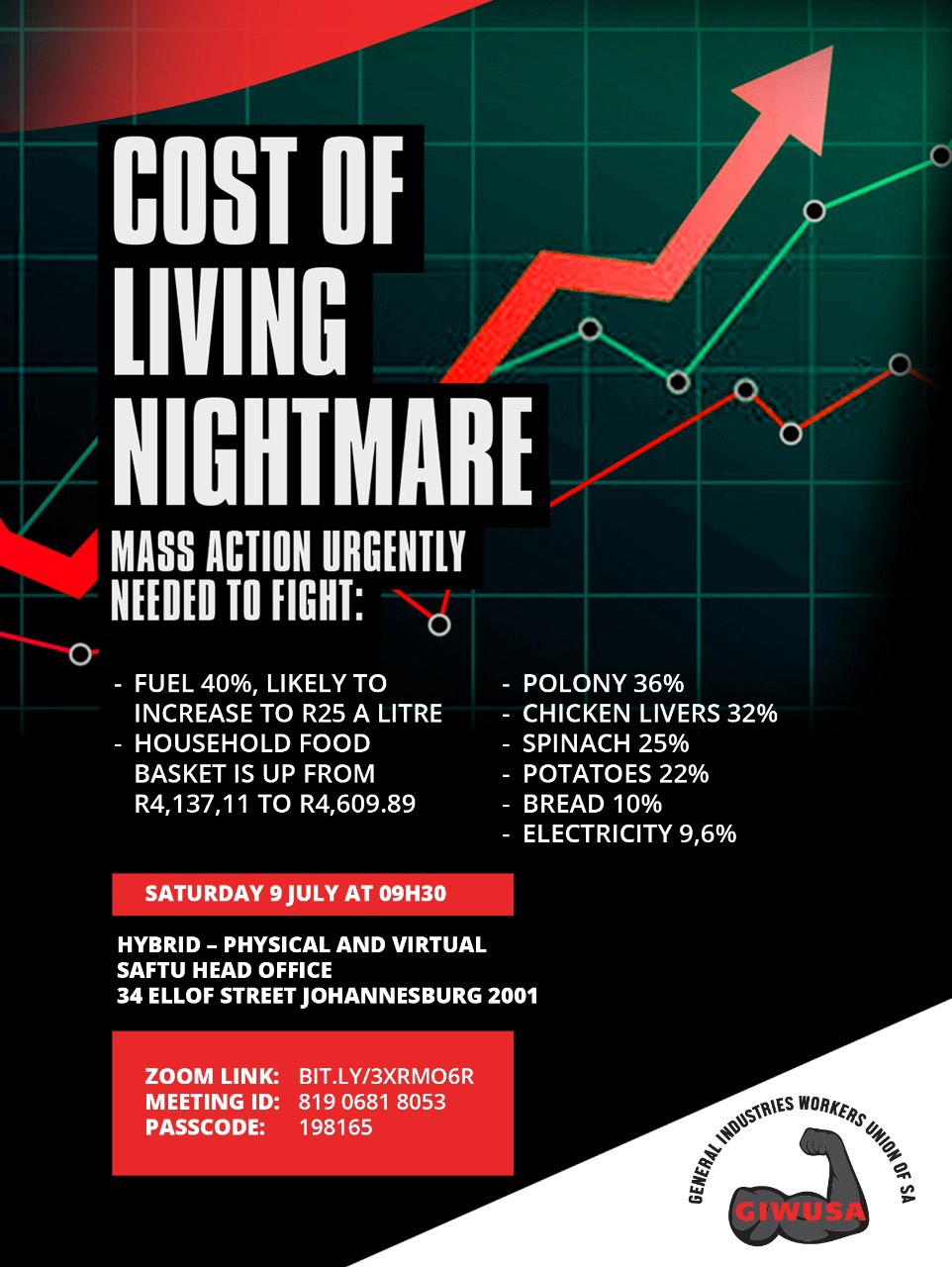CIVIL SOCIETY WATCH 4 - 8 JULY
This week — Calls for mass action over cost of living and compilation of HIV Language Compendium

The Parliamentary Monitoring Group and the Konrad-Adenauer-Stiftung are hosting an expert panel to reflect on the implications of the Zondo Commission reports for Parliament; the Land Portal Foundation is holding a webinar on technology and land rights; and the General Industries Workers Union of SA is hosting a meeting calling for mass action against the high cost of living.
Monday 4 July is the last day for individuals to apply for the upcoming anti-corruption hackathon, HackCorruption.
The HackCorruption event, hosted by Accountability Lab and the Center for International Private Enterprise, will be taking place between 22 and 24 July in Johannesburg. It will involve 100 virtual and in-person participants.
“The overall goal of the hackathon is to prevent, deter, and combat corruption by stimulating the innovative application of technology to address accountability gaps and build systemic integrity,” according to the event description.
The problem sets that the hackathon will cover are:
- beneficial ownership transparency;
- open contracting and transparency in public procurement;
- the accountable use of digital technologies; and
- digital citizenship to constrain corruption.
Apply for the HackCorruption event here.
On Tuesday, 5 July, at 3pm, the Hanns Seidel Foundation, together with the Institute for Security Studies (ISS), will be hosting an online seminar on “Cabo Delgado’s resource curse beyond natural gas”.
According to the event description, Mozambicans view the discovery of natural resources such as liquefied natural gas and rubies as drivers of the insurgency in the country’s north. Local people have been angered by a system that allows elites to benefit disproportionately from these resources.
“The targeting of [liquefied natural gas] projects by violent extremists led to the suspension of a major investment by TotalEnergies,” states the event description.
“In early June, attacks also threatened the mining of graphite, which is being produced for Elon Musk’s Tesla.”
The seminar will explore whether the mining activities are driving the insurgency, and how natural resources in Cabo Delgado province can be better governed.
The chairperson of the discussion is Liesl Louw-Vaudran, senior researcher at ISS. Speakers include João Feijó, researcher at the Observatory of Rural Areas, Mozambique; Fatima Mimbire, extractive industries expert and coordinator of the Civil Society Movement on the Sovereign Wealth Fund, Mozambique; and Borges Nhamirre, consultant at the ISS.
Register here.

On Wednesday, 6 July, at 10.30am, the Parliamentary Monitoring Group and the Konrad-Adenauer-Stiftung are hosting an expert panel to reflect on the implications of the Zondo Commission reports for Parliament. The discussion is titled, “State Capture Under Parliament’s Watch: Willful Blindness?”
The speakers include Hugh Corder of the University of Cape Town Department of Public Law; Martin Nicol, former parliamentary researcher; and Cilliers Brink, Democratic Alliance member of parliament. The moderator of the discussion is Ghalib Galant, chief catalyst at SynergyWORKS.
Register here.

On Wednesday at 3pm, the Global Initiative for Economic, Social and Cultural Rights (GI-ESCR), together with the Geneva Academy, is hosting a discussion to analyse, from a human rights perspective, the key risks, challenges and opportunities arising from the Chilean Constitutional process.
The discussion is titled “Economic, Social and Environmental Rights in Chile’s constitutional process”.
“In October 2019, massive social unrest erupted in Chile. The protests included rallies across the country demanding a new social, economic and environmental pact,” according to the event description.
“In late 2020, an overwhelming majority of Chileans (78%) voted in support of a new Constitution amid strong demands for dignity and economic justice that linger since the social unrest.”
The Chilean Constitutional Convention finished the draft of the new Constitution after 10 months of work. On 4 September, Chilean people 18 and older will vote in a national referendum on whether to adopt the new Constitution.
“Due to its transformative character, the new Constitution can be a pioneer in rethinking constitutional frameworks while addressing current global contexts where there are historical levels of inequality, a pressing climate crisis and serious threats of successive crises such as those being generated by the Covid-19 pandemic.”
The panellists in Wednesday’s discussion include Dr Christophe Golay, senior research fellow and strategic adviser on economic, social and cultural rights at the Geneva Academy; Dr Javier Couso, professor of law at the Universidad Diego Portales in Santiago, Chile; Dr Koldo Casla, lecturer in law and the director of the Human Rights Centre Clinic at the University of Essex (UK); and Valentina Contreras, associate programme officer for Chile at the Global Initiative for Economic, Social and Cultural Rights.
Also at 3pm, the O’Neill Institute’s HIV Policy Lab, the Global Network of People Living with HIV and Aidsfonds will be hosting a discussion on the HIV Language Compendium.
The compendium is a compilation of internationally agreed-upon language providing precedents for the use, proper interpretation and significance of concepts and terms “crucial for an evidence-based and rights-affirming response to HIV”, according to the event description.
It will be launched at the upcoming International Aids Conference, Aids 2022, which will take place between 29 July and 2 August.
“To ensure it lives up to this potential, we are seeking the input of practitioners, experts, advocates and community representatives at a series of meetings in early July,” according to the event description.
“This feedback will not only shape the Compendium’s finalisation, but also inform strategies for its promotion, long-term development, and use by other actors such as national legislators, policymakers and civil society.”
A second meeting with the same focus will be held at 3pm on Thursday 7 July.
Register for the meetings here.
On Thursday, 7 July, at 3pm, the Land Portal Foundation will be hosting a webinar titled “Where Technology Meets Land Rights: Utilising Technology to Support Land Governance”.
“As people across the globe turn to information and communication technologies (ICT’s) in their everyday lives, Indigenous Peoples and Local Communities are also utilising innovative solutions,” according to the event description.
“Communities are increasingly integrating their traditional knowledge, skills and values with digital and satellite tools that support them in their efforts to secure their ancestral territories and in navigating the challenges presented by climate change.”
The webinar will explore where technology meets land rights, and the potential benefits and drawbacks of this combination.
Register here.

On Friday, 8 July, at 1pm, the South African Depression and Anxiety Group (Sadag) will be hosting a Facebook live session on “Panic Disorders vs Panic Attacks”. The discussion takes place in the lead-up to Panic Awareness Day on Sunday, 10 July.
Speakers include Dr Lerator Dikobe, psychiatrist, and Shai Friedland, clinical psychologist and Sadag board member.

On Saturday 9 June at 9.30am, the General Industries Workers Union of SA will be hosting a meeting on the “Cost of Living Nightmare”. The organisation is calling for mass action to fight large price increases for products such as fuel, polony, bread and electricity.
The physical meeting will take place at the South African Federation of Trade Unions head office at 34 Ellof Street, Johannesburg. People can also join the meeting via Zoom with meeting ID 819 0681 8053 and passcode 198165.
In addition…
The most recent Lawyers for Human Rights (LHR) newsletter can be accessed here.
The newsletter provides insight into LHR’s projects, litigation and community work. Among the achievements celebrated in this publication is the re-launch of the organisation’s rights information app, help@hand, on World Refugee Day.
“The app is a low-cost and accessible tool. At a national level, the app provides information on the amendments to the Refugees Act… and important information for newcomers seeking refuge in South Africa,” according to the newsletter.
“The app provides clarity on the rights and processes to access basic services such as healthcare, education, documentation, and detentions. If legal advice about documentation and accessing the Asylum System is needed, the app directs the user to the LHR walk-in law clinics across the country.”
Enter 063 966 9083 on Whatsapp and type the word hi or hello to start the service.
The most recent Local Government Bulletin, published by the Dullah Omar Institute at the University of the Western Cape, can be accessed here.
An explainer of the June 2022 World Trade Organisation Agreement on Trade-Related Aspects of Intellectual Property Rights (Trips) deal can be accessed here. DM/MC



















 Become an Insider
Become an Insider
Comments - Please login in order to comment.